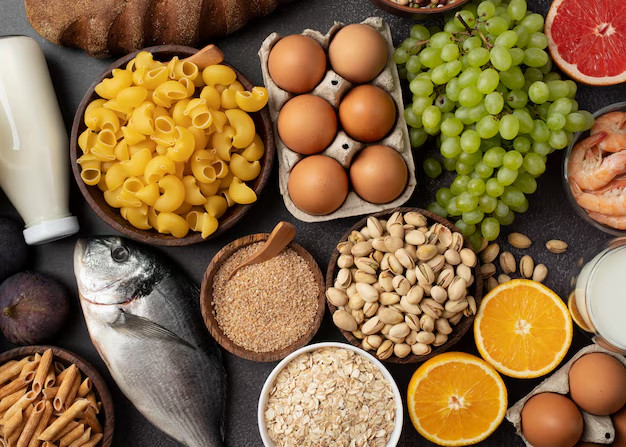Specifically, older women who consume more than 800 mg of calcium per day can reduce their risk of stroke by up to 94% and their risk of heart attack and cardiovascular disease by 73%.
The study was conducted by scientists from Severance Hospital, Yonsei College of Medicine and the School of Natural Sciences, School of Statistics, Seoul National University (Korea), in collaboration with Tu Du Hospital and Ho Chi Minh City University of Medicine and Pharmacy (Vietnam), including data from 12,348 Korean women aged 45 - 70.

Older women who consumed more than 800 mg of calcium per day had a 94% lower risk of stroke and a 73% lower risk of heart attack and cardiovascular disease.
Participants were divided into three groups according to their daily dietary calcium intake: less than 400 mg, 400–800 mg, and more than 800 mg.
The risk of cardiovascular disease, stroke, angina, and myocardial infarction was assessed in each group and followed for 16 years.
Results found that among older adults (postmenopausal for more than 10 years), those who consumed more than 800 mg of calcium per day had a 94% reduced risk of stroke and a 73% reduced risk of heart attack and cardiovascular disease, according to Nutrients.
Researchers explain that calcium can help improve blood lipid profiles, including reducing "bad" cholesterol levels, increasing "good" cholesterol levels, lowering blood pressure, and increasing insulin sensitivity, thereby helping to reduce cardiovascular events.
Estrogen in the female body is responsible for regulating calcium balance, thereby preventing cardiovascular disease.

Eating foods rich in calcium may help older women reduce their risk of stroke and heart attack
In older people who have been postmenopausal for many years, estrogen levels decrease, so this calcium balance cannot be maintained and causes cardiovascular disease.
Therefore, calcium supplementation helps them reduce the risk of stroke, heart attack and cardiovascular disease in general.
The authors concluded that adequate dietary calcium intake reduces the incidence of cardiovascular events in older women.
However, they also said more research is needed to confirm the results and determine the exact optimal amount of calcium.
Foods rich in calcium include milk and milk products such as cheese and yogurt; sardines, salmon; beans; soybeans and tofu; nuts; green leafy vegetables, spinach and some fruits such as lemons, oranges, pears, grapes, according to Healthline .
Source link


![[Photo] General Secretary To Lam receives Russian Ambassador to Vietnam](https://vstatic.vietnam.vn/vietnam/resource/IMAGE/2025/4/2/b486192404d54058b15165174ea36c4e)


![[Photo] Third meeting of the Organizing Subcommittee serving the 14th National Party Congress](https://vstatic.vietnam.vn/vietnam/resource/IMAGE/2025/4/2/3f342a185e714df58aad8c0fc08e4af2)




























![[Photo] Relatives of victims of the earthquake in Myanmar were moved and grateful to the rescue team of the Vietnamese Ministry of National Defense.](https://vstatic.vietnam.vn/vietnam/resource/IMAGE/2025/4/2/aa6a37e9b59543dfb0ddc7f44162a7a7)































































Comment (0)